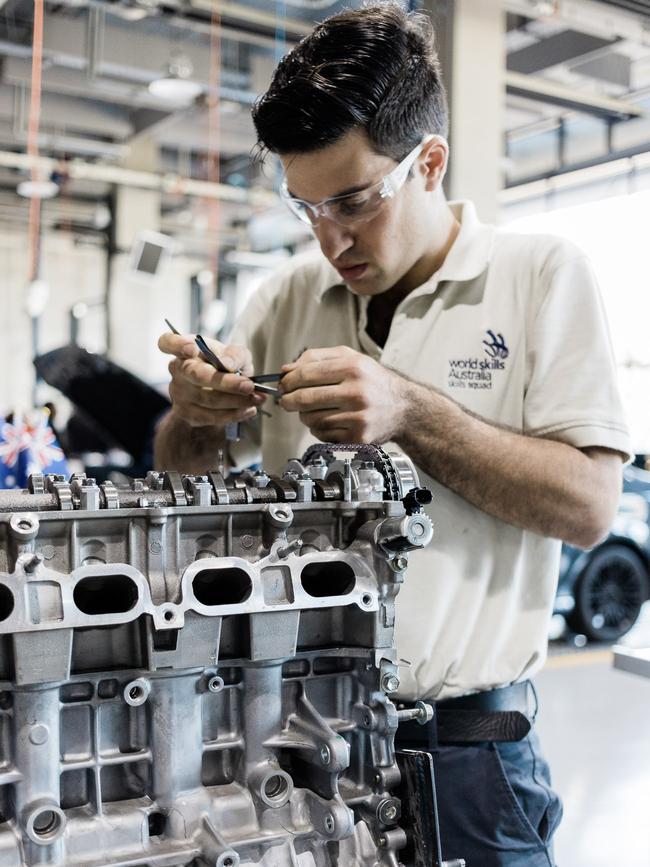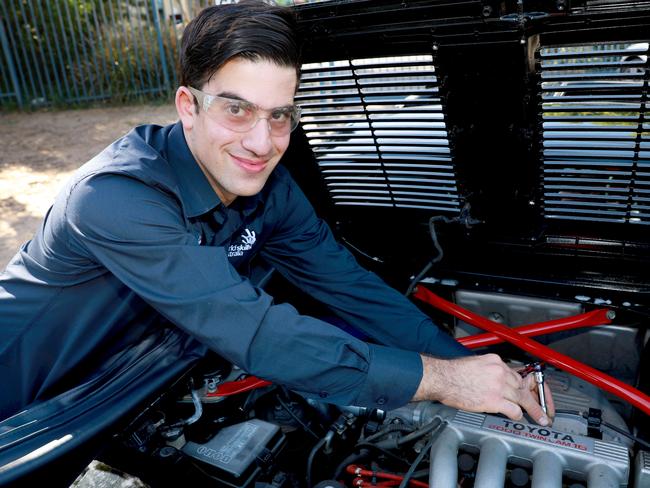Earnings and new tech bolster appeal of trades over uni
Almost a quarter of Australians would train in a trades or services role if they could “go back to high school and start again”, while less than a third would opt for uni.
Tertiary
Don't miss out on the headlines from Tertiary. Followed categories will be added to My News.
With the benefit of hindsight, almost a quarter of Australians say they would take up a trade as a career if they had their time again.
Many people say schools do not do enough to expose students to careers in the trades and services industry, despite it typically offering more work than industries requiring a university degree.
Advice: Careful steps needed on teen career path
Tertiary: New way to be master of your destiny

A SEEK survey of 4800 people reveals 24 per cent would train in a trades or services role if they could “turn back the clock and go back to high school and start again”.
By comparison, 31 per cent say they would go to university, 17 per cent would start their own business and 6 per cent would work their way up as an “unskilled” worker.
WorldSkills Australia general manager Brigitte Collins says perceptions of the trades and services industry, and of vocational education, seem to be improving.
“I’ve seen a real shift in the last couple of years, from a government point of view and just talking to students out there and parents we meet,” she says. “They are seeing ‘an apprentice after four years earns this much money and a student at uni has a HECS debt’.”
She says people also are beginning to see that not all trades and services roles are “dirty” or labour intensive.
“The old perception (of work as a motor mechanic is that) it is dirty but with technology being so influential in these skills as well, it’s not just manual labour any more,” she says.
Five in six people (84 per cent) surveyed by SEEK agree trades and services jobs are “a respected Aussie career”. The same portion believe qualified trades and services workers will “always have a job” while less than half (46 per cent) believe they risk being replaced by robots.
Despite this, 81 per cent say kids are not exposed to enough trades and services opportunities at high school these days.
Georgies Fine Jewellery head jeweller Jyothi Collins, who was an expert at WorldSkills Kazan 2019 last month and previously won silver in jewellery as a competitor at WorldSkills Sao Paulo 2015, says many people are not aware of the vocational education pathways available.
“When I was in high school, I didn’t realise that jewellery was a trade and was going to do a jewellery course at university,” she says.
“This would have been a waste of time because to then get into the jewellery trade I would have needed to do another four years of training as an apprentice.
“I think people should research what trades and skills are available to them so they can find a career that they are passionate about.”
New National Centre for Vocational Education Research data reveals the number of students undertaking school-based apprenticeships and traineeships — in which they begin their vocational training while completing high school — dropped by 6.7 per cent over the past five years.

A DRIVE TO SUCCEED
Automotive mechanic Anthony Ters began his career as a school-based apprentice and encourages young people to take up a trade.
At age 22, he holds both a Certificate III in Light Vehicle Mechanical Technology and a Certificate III in Automotive Electrical Technology.
He travelled to Russia last month to compete in WorldSkills Kazan 2019 — the so-called “skill Olympics”.
Ters came home with a Medallion of Excellence for his high-scoring performance in the automobile technology event.
“If you are interested in a trade, you should definitely give it a go,” he says.
“You could always move around and change careers in the future.”
Originally published as Earnings and new tech bolster appeal of trades over uni


